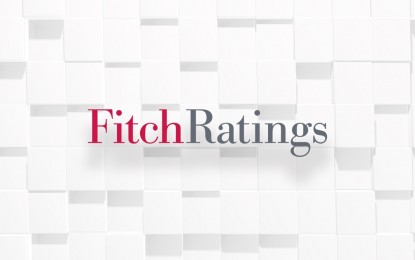
MANILA – Fitch Ratings on Friday retained its "BBB" classification for the Philippines due to its strong external position but maintained its negative outlook and noted its weakness on per capita income, governance standards, and human development.
In a report, the debt rater said its latest rating action on the country “reflects weak government revenue mobilization compared with peers and government debt/GDP (gross domestic product) that rose sharply from pre-Covid-19 pandemic levels but is forecast to stay close to the 'BBB' median over the next few years.”
“The Negative Outlook reflects uncertainty about medium-term growth prospects as well as possible challenges in unwinding the policy response to the health crisis and bringing government debt on a firm downward path,” it said.
The credit rater projects a 6.9-percent growth for the domestic economy this year and 7-percent expansion next year, both higher than the 5.6 percent output last year.
Economic managers’ have set a 7 to 9-percent GDP assumption for 2022 and a 6 to 7-percent growth for 2023 to 2024.
The improvement in the rate of vaccination against the coronavirus disease 2019 (Covid-19), drop in Covid-19 cases, and normalization of economic activities are seen to boost domestic growth, the report said.
The debt rater also saw increased infrastructure spending by the government as a plus to its economic growth.
Authorities estimated infrastructure spending last year to have hit 5.6 percent of the gross domestic product (GDP), higher than the previous year’s 4.8 percent.
They target this to rise to 5.9 percent this year, and go down to 5.5 percent and 5.4 percent in the next two years.
The hike in the government’s infrastructure investment is seen to “help address infrastructure shortcomings that have held back the country's growth potential,” the report said.
“The fiscal and monetary policy response, strong infrastructure spending, and resilient remittances and exports are also boosting the recovery,” it added.
However, these growth drivers are seen to be countered by the possible economic scarring on medium-term growth and the risks posed by new Covid-19 variants.
“Presidential elections scheduled for May 2022 also create uncertainty around the post-election fiscal and economic strategy, although we assume broad policy continuity will be maintained given the Philippines' record of a generally sound policy framework,” it said.
Relatively, government debt increased as the government spent more to address the impact of the pandemic on vulnerable sectors and counter its impact on the economy.
The ratio of government debt to the GDP stood at 48.1 percent in 2020 and Fitch Ratings said this is estimated to have increased to 54 percent of GDP last year.
It is seen to increase further to 54.5 percent this year but decline to around 53.1 percent next year.
“The Philippines' debt trajectory will depend on the balance of fiscal consolidation and ongoing government spending to support the economic recovery,” it said.
The budget gap is seen to decline to around 7.7 percent and 6 percent of the GDP for this year and next year from an estimated 8.4 percent last year.
“We expect minimal revenue impact from the country's remaining comprehensive tax reform programme, affecting real property valuation and assessment as well as passive income and financial intermediary taxation, which is to be passed before the end of this administration,” it added. (PNA)
